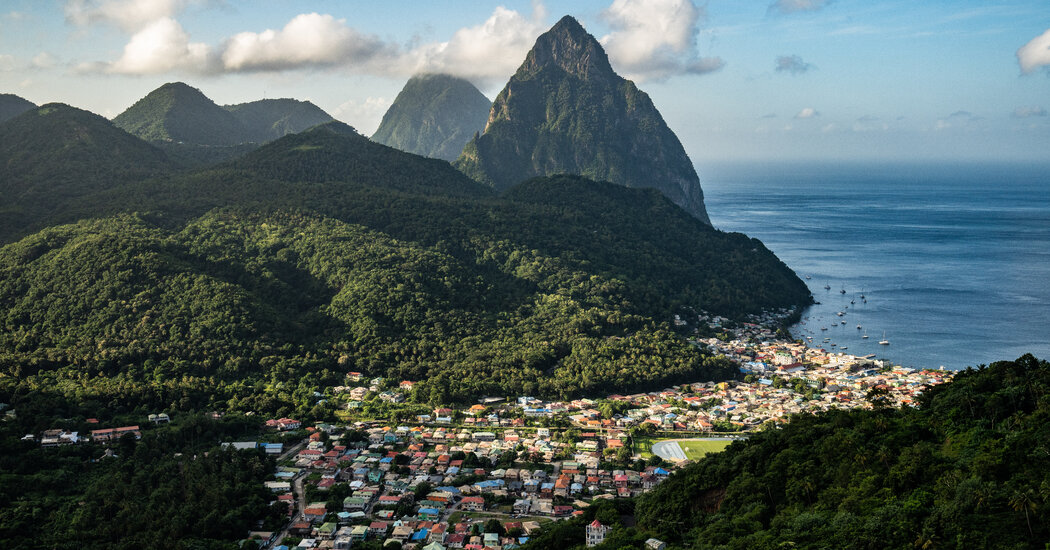“Here, smell this,” said Hans Mathurin, 29, as he pulled off the road, rolled down his window and snatched a leaf off a bush. After a skull-rattling ride along treacherous, bumpy roads en route to a Creole cooking class, I wasn’t quite in the mood to smell, much less eat, anything, but I took the crushed leaf and inhaled.
It was a bay leaf — a common ingredient in both St. Lucian Creole cuisine and, of course, many American dishes — but this bay leaf, with its intensely herbal, slightly sweet fragrance, was unlike any I had ever encountered.
“Our flavors are everywhere here,” Mr. Mathurin said, and indeed, everywhere I went I saw the evidence — coconut trees, mangos, plantains, sugar apples, markets overflowing with produce. Add to this St. Lucia’s remarkable natural beauty — pristine beaches, tropical forests and the dramatic twin Piton mountains — and Eden seemed like the perfect metaphor for St. Lucia.
A tourism shift
St. Lucia usually draws what locals call the “sea, sand and sun” tourist: those looking for not much more than a gorgeous beach from which to admire the breathtaking scenery.
For decades, the island’s culture was just an afterthought. An all-inclusive resort might ask local dancers and musicians to perform or invite artisans to sell their crafts or prepare a “Creole Cuisine” night, but the focus was on exposing the guest to a somewhat diluted version of St. Lucian culture instead of inviting visitors to get out and experience the community firsthand.
It was a trend that local business owners, with mounting cynicism, noticed. A holistic approach to tourism that combines both the island’s environmental wonders and Creole culture seemed to be the only solution, and these days, a new tourism minister is leading the charge.
Ernest Hilaire, 54, appointed minister for tourism, investment, creative industries, culture and information in August 2021, thinks that the tourism industry has to be redesigned with the St. Lucian people at the center.
“We believe more St Lucians should participate in the industry and own it,” Dr. Hilaire said. “The notion that so much of our tourism industry is not actually owned by locals but by foreign interests is not very encouraging for us.”
The focus under his leadership is community tourism: authentic local experiences that showcase the attractions, cuisine, traditional values and heritage of the St. Lucian people. Instead of a tourist purchasing a handwoven basket at the market…
Click Here to Read the Full Original Article at NYT > Travel…
